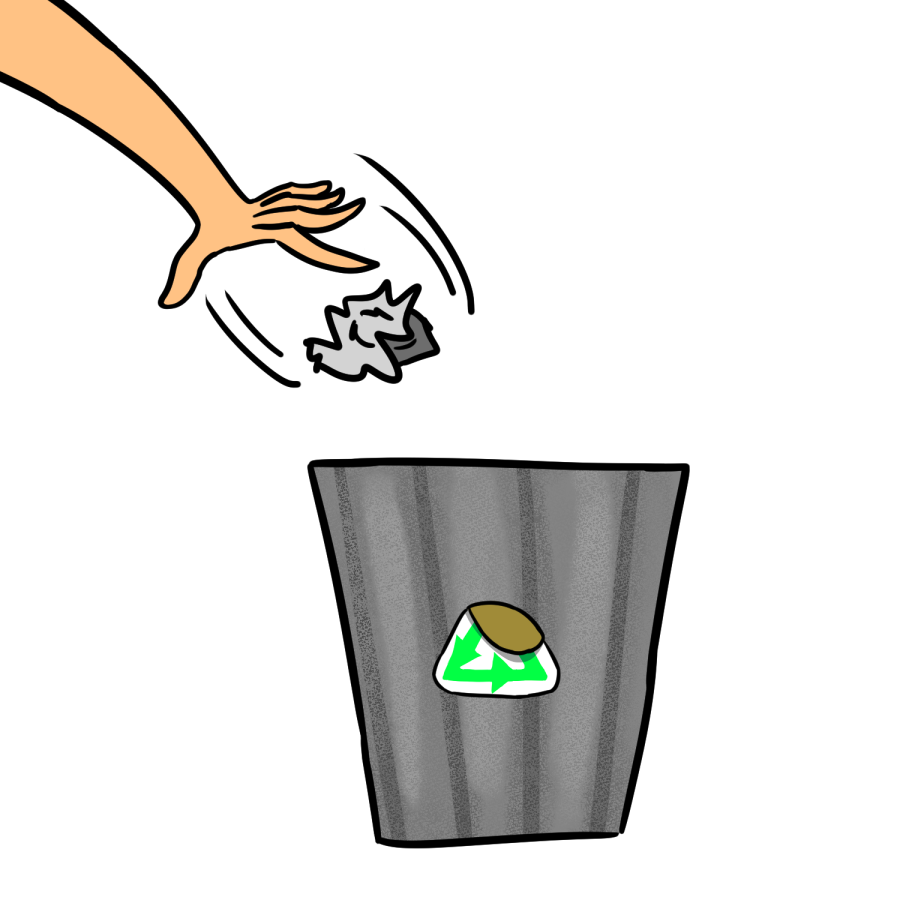The struggle to be sustainable
Trinity’s stance on sustainability is preventing true change
Throughout my time at Trinity, I’ve been involved in quite a lot, but nothing more so than the endeavor to improve our campus sustainability endeavors. Between increasing our rate of recycling, reducing wasteful watering habits and bringing more awareness to the true state of our levels of sustainability, there always seems to be something to improve. Unfortunately, even with students expressing high interest in sustainability, Trinity seems reluctant to change in any meaningful manner but doesn’t hesitate to greenwash itself as an institution for the sake of its image.
Back in February, John Scherding, university architect and director of sustainability, shared a memo encapsulating his different experiences and challenges over the course of his first year at Trinity. One of his points compared Trinity’s sustainability profile to those of the top 50 liberal arts colleges in the country, and we ranked quite poorly. As much as this might be disappointing, I don’t find it surprising.
Currently, the university website deems sustainability a priority for Trinity, incorporating it into building designs and daily practices to emphasize its importance. While Trinity does have accomplishments like Leadership in Energy and Environmental Design (LEED) certifications for a number of residence halls and the Center for the Sciences and Innovation (CSI), the website glosses over the issues present in other current sustainable initiatives. The recycling program lacks integrity across campus. Despite the use of separated bins, landscape irrigation is done at inefficient times which exacerbates water waste, and we’re well aware of the lack of vegetarian and vegan options within our current dining services.
To be frank, Trinity lost a good portion of its momentum with sustainable endeavors during the pandemic. Obviously, in a time of global uncertainty, environmental initiatives were not the main priority, but many of the issues previously identified remain untouched as we’ve recovered. For example, the Sustainability Hall, offered to first-year students as special interest housing, has not existed for a solid year, even though it’s still being advertised on the website. This can likely be attributed to the elimination of the separate position of sustainability coordinator and lumping the responsibilities of that role with those of the university architect. While Scherding is a capable individual, he is just one man who must expend more effort to incorporate sustainability, along with his other obligations.
This past semester, two initiatives surfaced on campus. One involved creating a green space on the patio of Coates Library’s fourth floor, while the other focused on restoring a broken pipe on CSI’s green roof so the plant beds can function properly. Both of these projects were proposed by students who noticed that something could be done to benefit the environment in our immediate surroundings, yet very little progress was made in either situation because of administrative circumvention. Excuses are rarely offered apart from shifting the blame to offload the issue onto someone or something else, such as low finances or excessive demand on facilities. When opportunities to do environmental good are denied, it sends a message that the administration doesn’t care, which only furthers student hesitancy to encourage change.
We can only do so much to increase the sustainability of our campus without full administrative support, even with high levels of student engagement. Student interest needs to be cultivated and capitalized on, as it’s the best form of motivation that we can provide to Trinity as a whole. Campus-wide composting, for example, has been an initiative that I’ve heard many people bring up, but it’s historically been shot down by higher-ups since the compost machine outside Mabee Dining Hall broke in 2019. Opportunities to expand current practices into new behaviors are what will result in lasting change. For those to occur, we as students must first be heard, and not just through environmental outlets like organizations and academic departments devoted to these areas.
It’s clear that sustainability is becoming increasingly important, especially among people our age. We know what needs to be done to make our communities better places to live, but inciting those changes isn’t something that we can presently do alone. To implement initiatives that have the potential to truly change the way the Trinity community views sustainability, we cannot back down and we cannot go it alone. Change can be made possible through insistence and accountability on the administration’s part can help make that change a reality.
Would it be possible to include a link to a survey from the sustainability committee asking for student feedback?


My name is Ava Peinhardt (she/her), and I'm the Opinions Editor for the Trinitonian. I'm a senior from Plano, TX majoring in Environmental Studies with...





